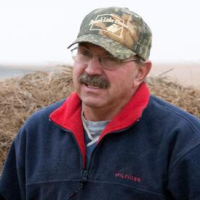292 Unreported Oil Pipeline Leaks in North Dakota in less than 2 Years
 Steve Jensen (photo: Kevin Cederstrom, AP)
Steve Jensen (photo: Kevin Cederstrom, AP)
As the Obama administration nears a decision on whether to authorize construction of the Keystone XL pipeline to carry tar sands crude from western Canada to the Texas Gulf Coast for refining and export, new information about hushed-up spills is raising additional questions about the project. The state of North Dakota—the country’s No. 2 oil producer and home to about 17,500 miles of pipeline—suffered nearly 300 oil pipeline spills in the past two years—and kept every one of them secret from the public.
According to the Associated Press, 292 pipeline spills (139 in 2012 and 153 so far in 2013) have released about 1,230 barrels of crude in the Peace Garden State since January 2012, while 459 other “oil field incidents” spilled 3,298 barrels, for a total of 4,528 barrels or 190,000 gallons of crude oil. Nearly half of the spills occurred in the middle of the state’s maze of pipelines, where spill detection is slow, while most occurred at sites where an oil well connects to a pipeline, making detection and cleanup quicker and easier.
Although most of the spills are classified as “small,” the toxicity of crude oil makes even small amounts hazardous to human, animal and plant life, and some spills have been quite large. On September 29, for example, farmer Steven Jensen discovered a six-inch fountain of oil bubbling up from his land and reported a pipeline spill. Investigators determined that a quarter-sized hole in a Tesoro Logistics pipeline had befouled at least seven acres of Jensen’s farm with more than 865,000 gallons/20,600 barrels of oil, making it one of the largest inland oil pipeline accidents in U.S. history. Lois Epstein, a civil engineer and pipeline expert for the Wilderness Society, estimates that oil may well have been leaking for weeks.
Nevertheless, North Dakota officials kept the massive oil spill a secret for eleven days, revealing the truth only after AP reporters started asking questions. Department of Mineral Resources director Lynn Helms—North Dakota’s top oil regulator—said his agency worries about “over-reporting” spills and wants to find a balance to so that “the public is aware of what’s happening but not overwhelmed by little incidents.”
But that view does not impress Don Morrison, director of the Dakota Resource Council, a 700-member pro-environment landowner group. “The public really should know about these. If there is a spill, sometimes a landowner may not even know about it. And if they do, people think it’s an isolated incident that’s only happening to them.”
As it is, North Dakota state law does not require that oil spills be made public and the federal Pipeline and Hazardous Materials Safety Administration requires that companies have some way of detecting pipeline leaks, but offers few specifics. Carl Weimer, executive director of the Pipeline Safety Trust, argues that the federal government has fallen behind on pipeline safety: “Even though people have been calling for better leak detection, it is usually a landowner who finds the spills. It runs counter to what the industry tells us, that they can detect and shut off these spills in minutes, when they actually go on for days.”
Soon after news of the large oil spill become public, the state Health Department suddenly announced that it is preparing a website to publicize all spills reported to the department, which would also allow users to track spills and their cleanup.
Northwest North Dakota farmer Louis Kuster welcomes that idea because information on spills “absolutely is important for us to know. What you don’t know, nobody is going to tell you,” he said. Kuster told AP that knowledge of small spills is important because even a barrel of oil could ruin water sources and force untold acres of land out of production. “It would tell me if there is enough oversight and why these accidents happen and if they could have been avoided,” he claims. “Right now, you don't know if there is a spill unless you find it yourself.”
-Matt Bewig
To Learn More:
ND Spills Went Unreported; State Testing Website (by James MacPherson, Associated Press)
Oil Spill in North Dakota Raises Detection Concerns (by Dan Frosch, New York Times)
- Top Stories
- Unusual News
- Where is the Money Going?
- Controversies
- U.S. and the World
- Appointments and Resignations
- Latest News
- Trump Orders ICE and Border Patrol to Kill More Protestors
- Trump Renames National Football League National Trump League
- Trump to Stop Deportations If…
- Trump Denounces World Series
- What If China Invaded the United States?






Comments